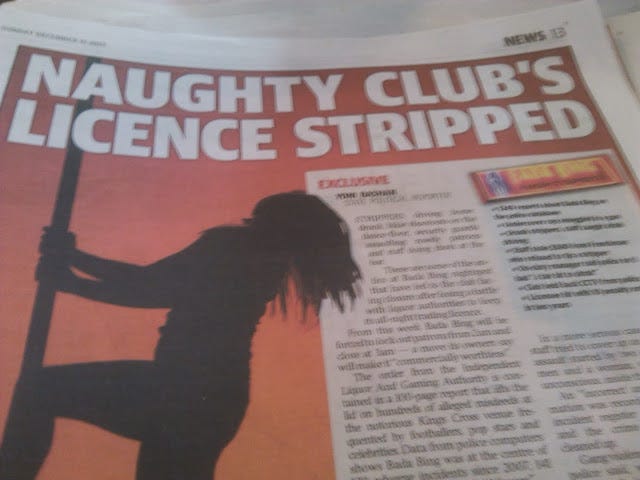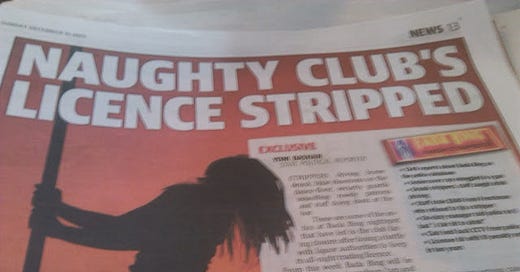
From The Daily Telegraph
He had been angry and sad for a very long time; haunted by his ridiculous pursuit, humiliated by his own mistakes. Stories of being robbed, deceived and ridiculed circled in his brain as if they would never stop. Dangerous people, dangerous to know. And all he had achieved was to blow himself up. "He should be thankful to be alive." Yes, well there was that. He was deliberately climbing out of a depression which had hit him, a dark, clammy hand. Someone was always betrayed in the end. He wanted to be quiet now; to get on with things. He had found the surveillance extremely difficult; how much they had ridiculed him, concocted hate. Searching for fun and affection, instead all he had found was ignominy and confusion.
He had to stand up to it. He had to move on. Sometimes he thought they were still threatening to kill him; but they had done their worst and he had done his worst and he just wanted to retreat to the sunny uplands of the spirit, to quote Michael Dransfield. "Let us go then, you and your music and the wind and I, leaving from very strange stations of the Cross, from the uncharted uplands of the spirit." He had collapsed under pressure; a broken man. But from every death a resurrection. Except this time was different. Regret and remorse could pound him forever; the things that had happened. The security he had flung away.
One door shuts and another opens. He was fond of quoting the old cliche. And perhaps he would never have started off with the new project if he had slipped comfortably into retirement. That was where the story came in, became the justification. At least he had given it a go. But he didn't know now where it would lead. Humility. Remorse. If he felt claustrophobic it was easy to understand why. Watched, watched, squirming, his unlovely, aging body. Humiliated as he had been. He wouldn't have wished it on his worst enemy. "And if they had succeeded, if they had killed me, none of them could have cared less," he told a senior editor in a farang bar in Bangkok late one afternoon.
These moments of intimacy, or clairvoyance, seemed impossible without the fluidity of alcohol lifting the wings; although plenty of other people managed it. He had done his sociology thesis on bars and it never once occurred to him that he might have a problem with alcohol. That it made him feel worse, not better. That perhaps the Buddha might have had a point when he declared, "no intoxicants". For all the stifled shouts; difficult to tell now what was real and what concocted; what were natural fluctuations in sound and what were exactly what he wanted to hear, or, all too often, what he was meant to hear. These things had been so haunting, and now he had drifted away. It had all been a terrible accident. He hadn't meant to come to the attention of anybody. He had just wanted respite after all those years of work.
There had been no respite. "Amazing how miserable you can get trying to have fun," he declared, but the irony was lost.



